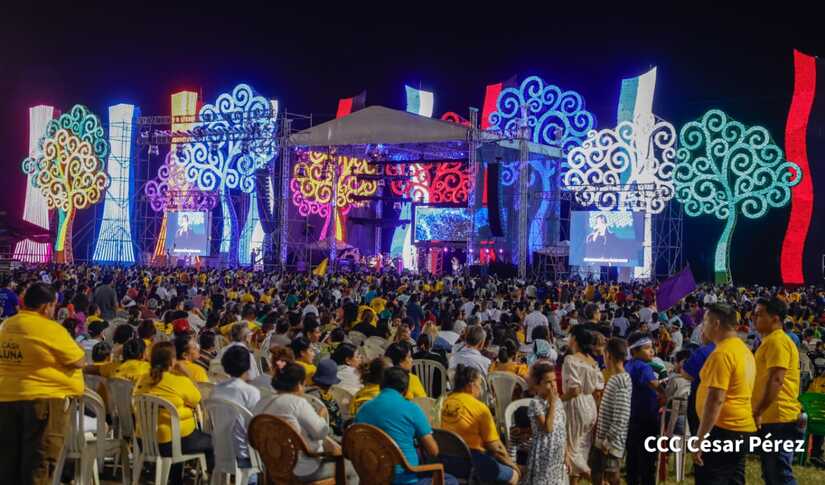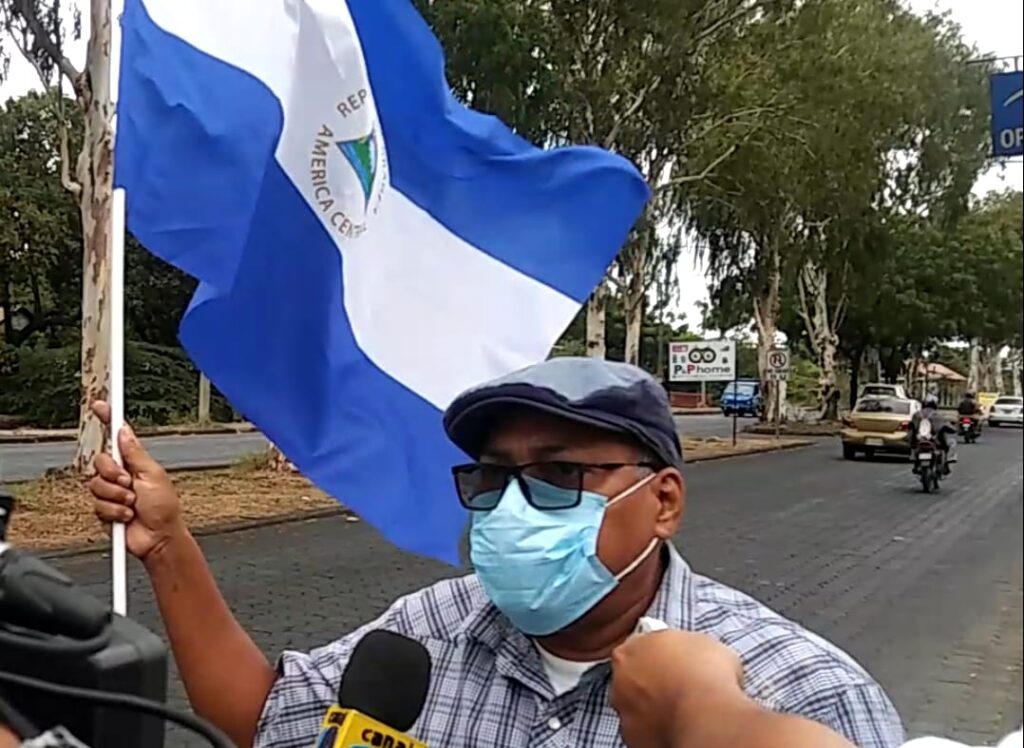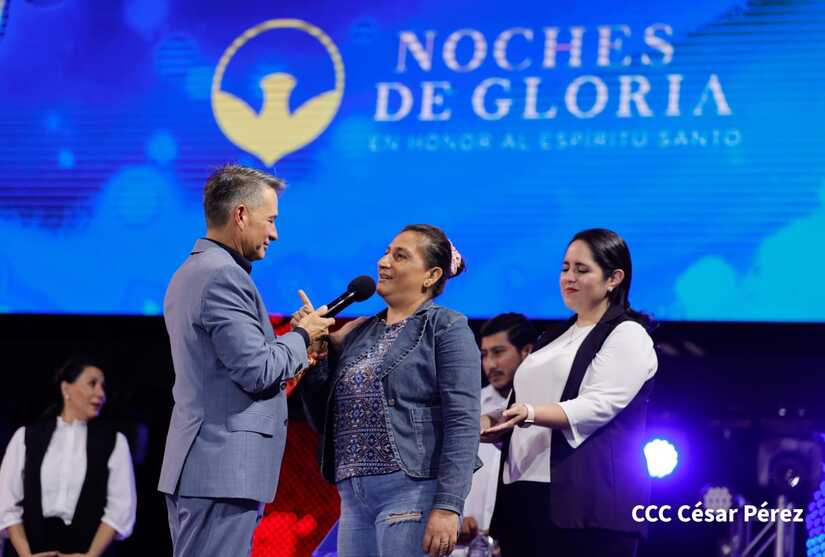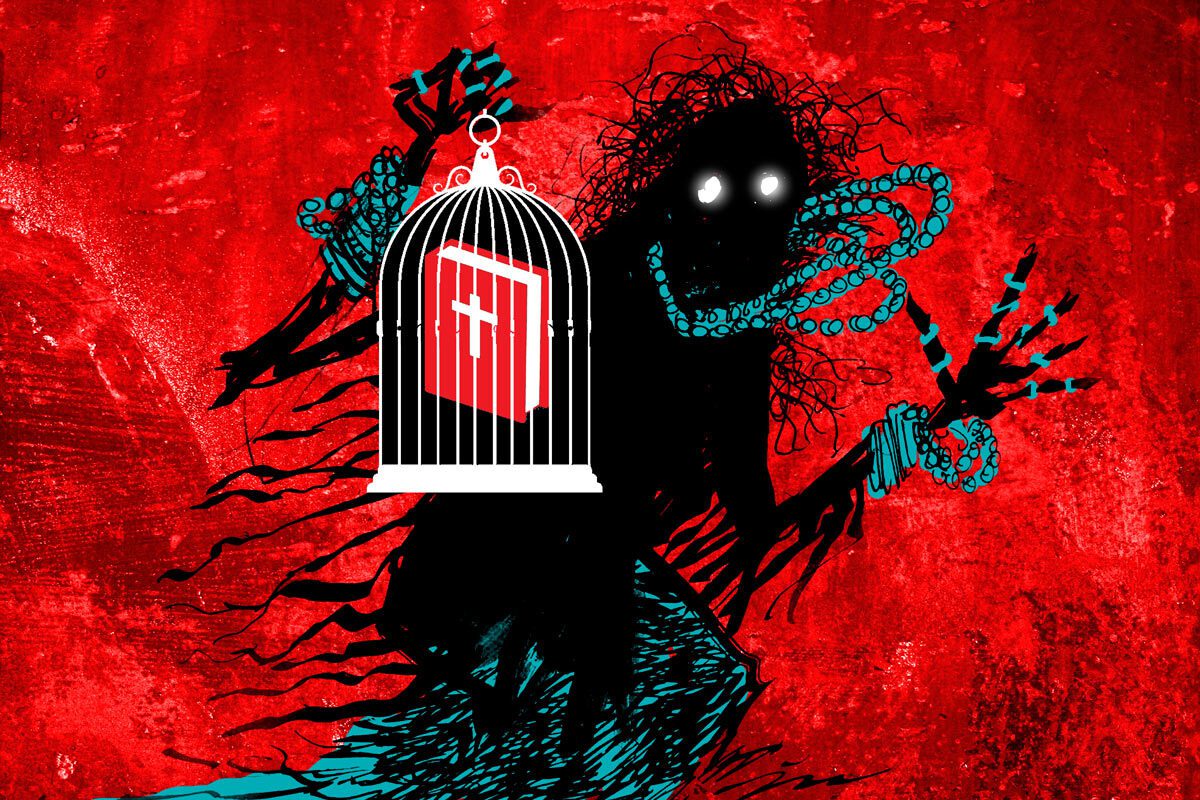In June 2022, members of an evangelical church in Managua’s District IV received a form to fill out at home. The document requested personal data: full name, ID number, age, occupation, and also asked for information on the number of children, and whether they had migrated or were living in Nicaragua.
A member of this church interviewed by DIVERGENTES said that the pastor told his members that the new requirement was to be able to complete the requisites to renew the legal status of the church, which in turn allows access to donations or to be able to carry out activities, such as free medical campaigns.
After a few months of submitting the form, this church placed a device at the entrance for members to place their thumbs before entering the service, as when workers in a company mark the exit or entry to a job. “We think it’s a machine to keep us in check,” says this member.
The case of the District IV church, with a system to register the entries and exits of its members, is the only one we were able to verify. But it gives a glimpse of the control mechanisms that are starting to be used to have information about their members, through their religious leaders, who in turn “are being pressured to give this information to the government (Ministry of the Interior) if they want legal status”, said an evangelical pastor consulted for this article, on condition of anonymity.
Control and surveillance of members

Although evangelical churches usually present information about their members in a general way: number of members, their age, among other data, as a requirement to access a legal status, now other questions about their relatives are included.
“They are asking if their relatives have migrated, or if they live in Nicaragua, what they do, if they study or work, or how much money they send if they are outside the country,” said the evangelical pastor.
Another evangelical pastor, also from Managua, confirmed that the Evangelical Church in Nicaragua is being attacked in a “more subtle way”, through regulations or requirements for organizations to be approved as legal entities.
The last edition of the report “Nicaragua: a persecuted Church?“, by Martha Patricia Molina, registers an increase in attacks against the Evangelical Church in the last two years.
21 pastors of evangelical churches exiled
This period records 49 of the 70 aggressions that have been made public since the beginning of the political crisis in 2018. That is, in the last two years there is a 70% increase in aggressions.
Among the aggressions are the closures of evangelical NGOs, siege and repression of evangelical pastors or their families. The document states that there are evangelicals who have been prosecuted, exiled and persecuted by police and paramilitaries. In other cases they have been denied entry to the country.
The report highlights that seven evangelical church buildings and projects have been closed and their properties confiscated. At least eight media outlets and universities have been canceled and closed. There have also been impediments to Christian activities and sieges to evangelical temples.
The document records that 21 evangelical pastors “have had to flee into exile as a result of persecution by the Ortega-Murillo dictatorship and three of them have been denied entry into Nicaragua”.
Human rights activist Haydee Castillo said that she has documented cases of evangelical churches being persecuted, especially those that are clear about their pastoral function and Christian principles.
“Right now I have received complaints in the north of the country where all public activities are forbidden,” she said.
Evangelicals on the rise in Nicaragua

The last population census, in 2005, revealed that out of a population of 4,537,200 people, 981,795 said they were evangelicals, or 22%. However, in recent years the evangelical population has increased to 38%, according to the latest survey by the CID Gallup, published in November 2022. This figure would bring the number of evangelicals to more than 2.5 million.
The report highlights that there are two bodies that bring together evangelical Christians in Nicaragua. The first is the National Council of Evangelical Pastors of Nicaragua (CNPEN). The other is the Federation of Evangelical Churches of Nicaragua (Fienic), created in 2015.
One of the strongest blows to the Evangelical Church was the cancellation of the legal status of the Asociación Misión Cristiana Verbo, one of the most important in the country, since 27 temples and humanitarian projects operated as part of it, among them the orphanage “Casa Bernabé”.
To date, 23 Non-Profit Organizations (NPOs) have been closed by the Ortega-Murillo regime and their properties confiscated. However, the human rights collective, Nicaragua Nunca Más, in its report “The Closing of Civic Space in Nicaragua“, noted that 240 evangelical churches have been closed.
Persecuted pastor: some evangelical leaders keep quiet for rewards
One of the pastors who went into exile due to police harassment was Henry Aguilar, who fled Nicaragua with his family in November 2022. The religious man was known for participating in the 2018 demonstrations. He would go out to walk the streets of Managua with the Nicaraguan flag to demand the release of political prisoners. This caused the police and pro-Ortega sympathizers to harass and monitor him, to the point of losing his job.
In an interview with La Mesa Redonda, Pastor Aguilar said that the regime is trying to control the evangelical churches. “Here there is a group (evangelical) that is allied with the government, pastors and Christian leaders who applaud and remain silent for personal benefits that I have always criticized”, he denounced.
“These leaders are not the Evangelical Church, the Evangelical Church is the one in the street (…) Every so often the (Sandinista) political secretaries visit the Evangelical churches in each neighborhood, many of our pastors refuse to participate, but they are being watched, these pastors feel fear regarding the regime’s attitude. Some have left the country and this is not well known”, he added.
Privileges for certain evangelical leaders

Despite all the episodes of aggression against the Church documented in this report, the main evangelical leaders enjoy privileges, “for showing their support to the regime”, according to researcher Martha Patricia Molina, author of the report.
This has led the regime to support massive evangelical concerts and vigils in public squares and buildings. There is also a strong component of economic support. An investigation by La Lupa revealed that at least 94 evangelical entities have received money from the General Budget of the Republic.
Last weekend, on November 11 and 10, the Ministry Puerta de la Montaña and its Pastoral in Managua, held two nights of worship as part of the closing of the ” Good News Crusades Nicaragua 2023″.
These were two massive events held in Plaza La Fe, Managua, where the Sandinista Front, before 2019, would hold a massive gathering to celebrate the anniversary of the 1979 revolution.
In August of this year, one year after the imprisonment of the bishop of Matagalpa, Rolando Alvarez, the dictatorship celebrated the arrival of a controversial Guatemalan pastor, Cash Luna, accused of having links with drug trafficking and money laundering operations. He held a two-day evangelical conference, also in Plaza La Fe, one of the largest venues for public events.
The person in charge of welcoming Luna was the Minister of Health, Martha Reyes, who conveyed the greetings of Ortega and Murillo, and “of all government authorities”. Meanwhile, Luna thanked “all the support that the Government has provided for this activity to take place”.





